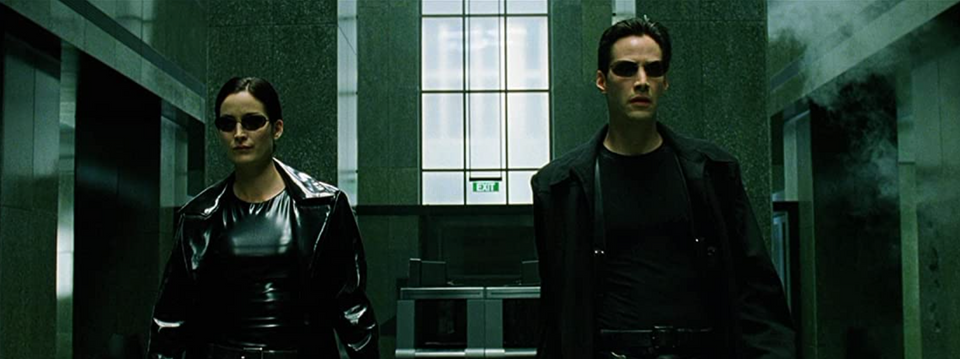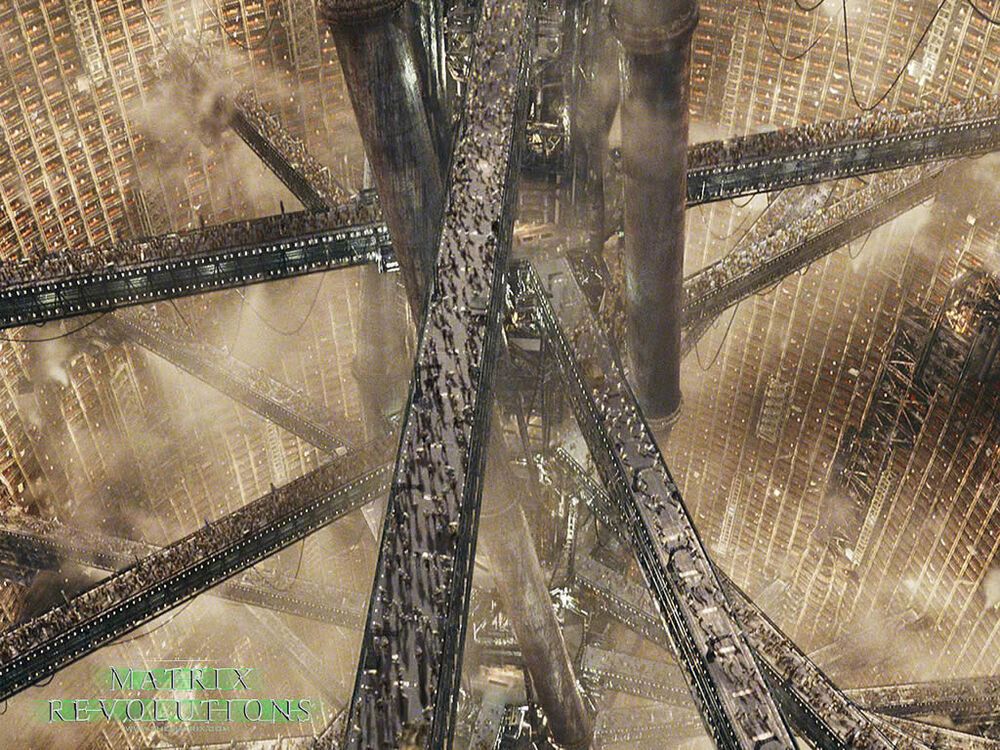Is freeing everyone from the Matrix really a good idea?

More than 20 years after Thomas Anderson learned that he wasn't really a computer programmer, but a biological battery running a computer program installed in his brain by ruthless machines, audiences around the world are headed back into the Matrix next week with the release of the eponymous franchise's fourth chapter, The Matrix Resurrections. Based on the trailer that dropped in September, Anderson no longer remembers his time as Neo, the quasi-Jesus figure who led an uprising against humanity's robot slavers. Instead, he's been re-integrated into the pathetic mind prison known as the Matrix, no doubt destined to discover the illusion and take up the fight for freedom again.
I'm adult enough to admit that I loved the original Matrix movie, and while the sequels didn't measure up, I'm damn excited to see the franchise reboot. And of course, I'll be rooting for Neo, Trinity, Morpheus, and the rest of the gang to triumph against their AI adversaries. But a small part of me can't help but question the insurgency's endgame of waking up the masses who unwittingly cosplay The Sims all day. Without careful planning, that could be a catastrophe.
The entire free population of Earth lives in Zion, an underground city roughly the size of Buffalo, New York. Adding millions of additional humans overnight — humans who have never worked, or even moved, a day in their lives — will be a monumental challenge. To prevent mass starvation, disease epidemics, and general pandemonium as they flood in, Zion's government needs to begin planning for the newcomers now. Because I am doubtful that Neo and his fellow leather-clad revolutionaries have attended a city planning meeting recently, I decided to ask some professionals what factors Zion needs to consider.
Climate and urban policy expert Matthew Lewis says that Zion's first step should be making sure there's adequate water and sewer infrastructure to accommodate everyone. "What you don't want is to walk into a massive cholera outbreak," Lewis told The Science of Fiction. "They've got to make sure there's waste removal, water treatment, and somewhere for people to poop."
Even if the city's water and sanitation systems are prepared for a flood of newcomers, Zion will face unique public health challenges owing to the fact that everyone who was just freed from the Matrix has spent their entire life in an artificial amniotic sac, free from exposure to germs. Their immune systems are totally naive, placing them "at high risk of infectious disease," Kent State University disease epidemiologist Tara Smith told The Science of Fiction.
"Basically, these people would be similar to gnotobiotic mice: raised in a sterile environment," Smith wrote in an email. "This sounds fine, but we need interactions with microbes for our immune system to develop normally; to train our immune system to respond to dangers, but [also] to 'get along' with our normal bacterial flora." Smith says Zion might want to consider isolating the newcomers at first and giving everyone a fecal transplant in order to jumpstart their microbiomes and begin training their immune systems. After that, they could be caught up on their vaccines and start mixing with the rest of the population. Smith cautions Zion will have to be particularly careful about what the newcomers are eating and drinking while their immune systems are getting up to speed, although she says the gruel-like substance humans are seen eating in the first Matrix film "probably would be OK since presumably it’s fully cooked."
Exponentially scaling up food production will be another challenge. We don't know much about what the diet in Zion consists of, although there may be very little variety; in the original 199 Matrix film, we learn that the gruel eaten aboard Morpheus's ship contains "everything the body needs" including all of the necessary amino acids, vitamins, and minerals. Perhaps Free Humanity's signature potage is made of some sort of fungus or bacteria, like yeast, that can be grown in large, environmentally-controlled vats. Of course, with enough electricity, Zion's underground agronomists could start to introduce fruits and vegetables into the diet, growing them in artificially-lit greenhouses similar to those used in Iceland to produce veggies throughout the long, dark winter.
Either way, increasing the city's food output dramatically in order to feed all the new arrivals is going to require more energy. We don't know much about Zion's electric grid, but we do know that the city is located "deep underground, near the Earth's core where it's still warm," according to Nebuchadnezzar crewmate Tank. Zion, in other words, is geothermally powered. That's a boon for the city's air quality, but whether Zion will be able to scale up its geothermal power production to meet the needs of a much larger population is unclear. Iceland, again, is a useful point of comparison: Nine out of ten Icelandic households are geothermally heated, but that's only because the island nation sits atop a volcanic hotspot.
"Not everybody lives on volcanoes," Lewis says. "There is a very pertinent geography question about where on Earth's surface Zion actually is."
If Zion's geothermal power plants are already running full tilt, the city might want to consider going nuclear. Nuclear energy can be produced safely underground —the entire US naval submarine fleet is nuclear powered — and since the residents of Zion are already adept at drilling holes through rock, they shouldn't have any problem disposing of the nuclear waste far away from where people live. However, Paul Cosgrove, a nuclear engineer at the University of Cambridge, cautions that in order for nuclear power to work, Zion would have to have someplace to offload the large amounts of waste heat produced during nuclear fission.
"If there were large underground lakes then it might well be possible," Cosgrove told The Science of Fiction. "Otherwise, they might need to tap water that was closer to the surface, which might also lead to some detection risk."
Adam Stein, the senior nuclear energy analyst at The Breakthrough Institute, adds that if water is too scarce to use as a coolant, Zion's nuclear engineers could try making a coolant using sodium, molten salt, or lead — assuming they can find the raw materials. "Fusion would avoid most of these challenges, but considering the machines had to enslave mankind for a source of power it is safe to assume humanity hasn't cracked that challenge in their future timeline," Stein said.

Food and energy aside, Zion will also need to build lots of housing for the coming wave of refugees to live in. In the US, Lewis says that cities often struggle to accommodate large waves of newcomers because of a failure to plan for population growth, combined with fierce resistance local residents who don't want their city to grow and change. Zion, Lewis says, can't afford such NIMBY-ism.
"Part of the ideology that they would need to have because they've escaped the Matrix is 'We need to make sure that we're ready for everyone else who gets out of there,'" Lewis says. "There's an altruism that has to be woven into their existence."
Of course, all the altruism and planning in the world won't guarantee Zion survives its titanic growth spurt. Even if the city makes it through the initial influx of newcomers without any famines or pandemics, cultural clashes between those who've been working fake office jobs all day and those who've been farming gruel in caves could create instability. If America's post-Civil War Great Migration, when millions of African American former slaves moved North to start new lives in cities, is any indicator, managing the social dynamics without allowing bigotry and mistrust to drive decision-making will be at least as big of a long-term challenge for Zion as preventing cholera outbreaks.
What's clear is that if Zion does prevail, it won't be because one sullen guy in a trenchcoat stopped some bullets with a hand gesture. It'll be thanks to millions of ordinary people working together to build a better future.